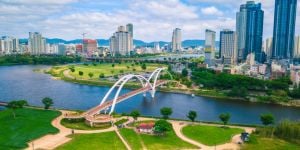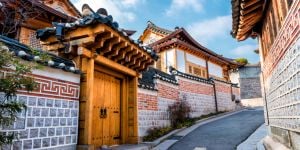
Busan is located around 450 km from Seoul and is the second largest city in the country. It is a very popular destination with a population of more than 3.5 million, including a large https://www.expat.community. As a result, it is not too hard to find suitable housing in Busan if you are planning to live and work in Busan.
Busan's neighbourhoods
The city of Busan is divided into 16 districts, including residential, commercial and industrial areas. You will find Buk-gu in the north of the city, Busanjin-gu near the city centre, Suyeong-gu, which is the United Nations central district, Yeongdo-gu, located in the south-east, as well as Haeundae-gu, the city's most popular tourists destination. Every year, thousands of visitors come to Busan because of its beaches and numerous tourist attractions.
The Haeundae district, located in the eastern part of the city, has a higher concentration of expatriates due to its proximity to attractions and shopping centres, and due to the availability of modern housing.
Types of accommodation
Busan has a wide range of apartments for all tastes and budgets. Large multi-storey residential complexes and small studios or apartments can be found for rent all over the city. Multi-storey apartments are called "Apateu" while smaller ones are called "jutaek yeollip". Note that most apartments have piped gas for heating and cooking.
However, you can also find individual houses, known as 'jutaek dandok", villas and 'officetels', office complexes and apartments grouped in a single building, across Busan.
Housing prices
Housing in Busan is quite affordable compared to housing in Seoul. Rent for a one-bedroom apartment in a residential neighbourhood not too far from the city centre, is around 400,000 Won per month. On top of that, you will have to provide a deposit of around 10 million Won or more, which you will get back when moving out. To rent a house or a villa, you will need between 600,000 and 900,000 Won per month.
Rent prices vary depending on the neighbourhood and age of the building. Classified ads are helpful resources to inquire about prices and availability. The local https://www.expat.community also helps each other in terms of finding housing and getting settled. Many expatriates find housing via word-of-mouth, which is often a lot easier and involves less time for research.
Also note that many employers provide free housing to their employees. This is particularly the case for expatriates coming to South Korea as English teachers. Whether you work for a public or private school, most employers generally provide housing for free or a monthly housing stipend if you wish to rent or buy your accommodation. Housing provided from schools tend to be studio or one-bedroom apartments.
Useful links:
We do our best to provide accurate and up to date information. However, if you have noticed any inaccuracies in this article, please let us know in the comments section below.








Comments